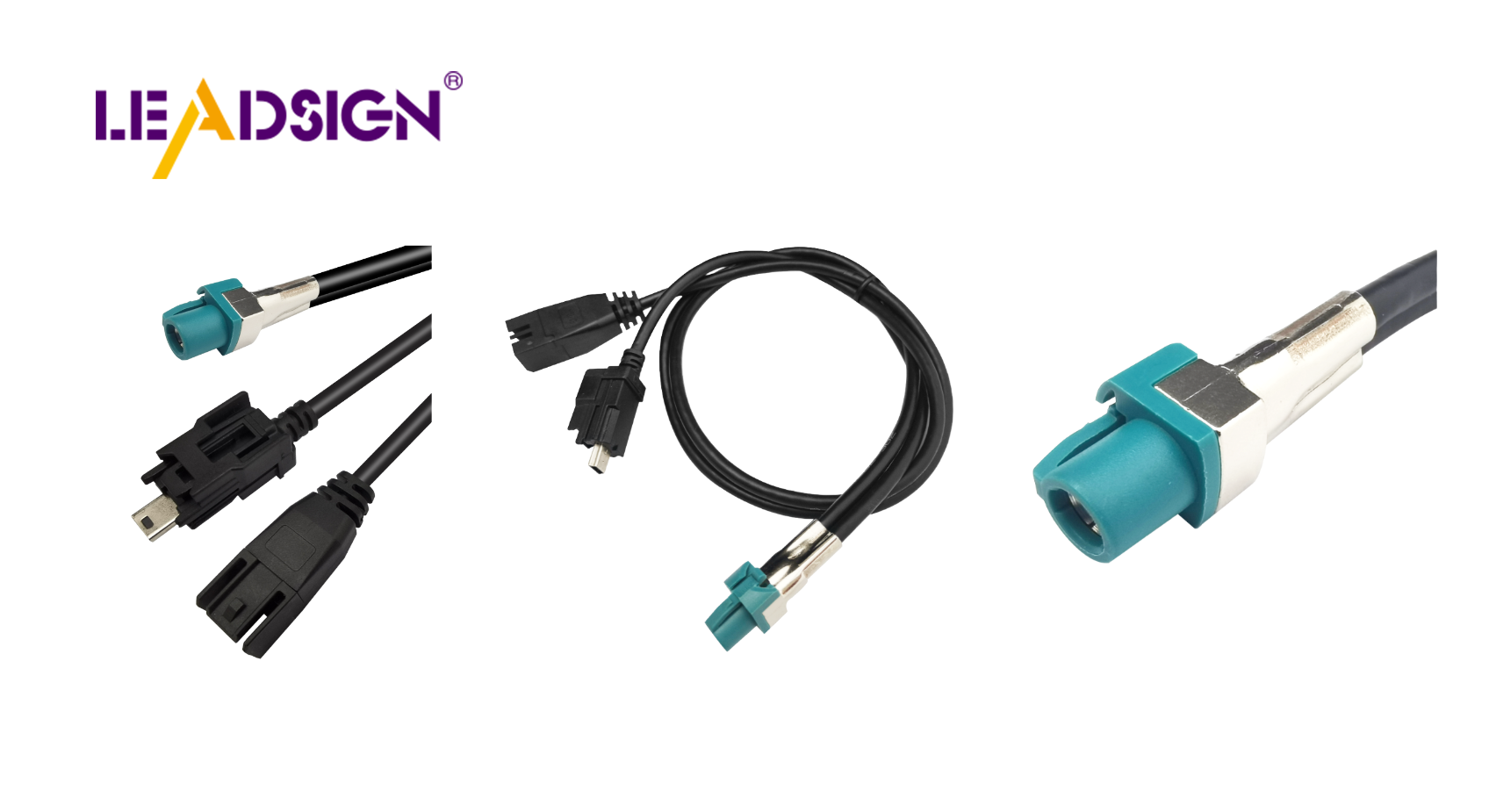Understanding Automotive Wiring Connector Types

In cars, automotive electrical connectors types are very important. They keep electrical connections strong and working well. Without them, your car's electric system would often break. Connectors come in different shapes and sizes for different jobs. Knowing about these connectors helps you pick the right one for your car. This knowledge makes your car work better and last longer. Choosing the right connector keeps your car safe and working properly.
Car Electrical Connectors Types
Knowing different car electrical connectors helps you choose the right ones. Each type has special features and uses, so it's important to know which fits best.
Blade Connectors
Blade connectors are very common in cars. They are simple and dependable.
Features and Uses
Blade connectors have a flat metal piece that fits into a slot. This makes sure they connect well. You use them in car lights like headlights and taillights. They also work in fuse boxes and low-power areas.
Good and Bad Points
Blade connectors are easy to use. They connect quickly without much trouble. Their shape stops them from coming loose easily. But they can't handle high power well. They might rust if they get wet.
Pin Connectors
Pin connectors are another popular choice for cars. They can be used in many ways.
Features and Uses
Pin connectors have pins that fit into sockets, making a solid connection. You find them in engine parts and sensors. They help link different electronic parts in a car.
Good and Bad Points
Pin connectors are strong, even in tough places. They allow many connections in small spaces but can be hard to put together because they are complex. Special tools might be needed to set them up right.
Butt Connectors
Butt connectors join wires end-to-end safely with insulation.
Features and Uses
Butt connectors look like tubes with holes on both ends for wires to go through before being crimped together. They're used for fixing or changing car wiring, extending wire lengths, or joining different wire sizes.
Good and Bad Points
Butt connectors make strong connections that don't come apart easily while keeping out moisture or dirt but can be hard to take off once crimped; extra tools may be needed for proper setup.
By learning about these car electrical connector types, you can pick the best one for your needs, ensuring good connections that improve how your car works.
Picking the Right Connector
Choosing the right car connectors is very important. You need to think about a few things to make the best choice.
Things to Think About
Power Needs
First, know your car's power needs. Different connectors handle different amounts of electricity. Match the connector's power with your car's needs. High-power systems need strong connectors that won't get too hot. Always check details for a good match.
Weather Conditions
Next, think about where your car goes. Some connectors are made for tough weather. If your car gets wet or dusty, use sealed connectors. They keep water and dirt out. If your car stays inside, regular ones might be okay.
Mistakes to Avoid
Wrong Size
A common mistake is picking the wrong size. Connectors come in many sizes for different wires. Using one that's too big or small can be bad. Measure the wire and pick one that fits well for a strong connection.
Bad Material Choice
Another mistake is choosing bad materials. Connectors use stuff like copper or aluminum. Copper works well for most things because it carries electricity great. Aluminum is light and might work for special uses. Think about what material is best for your car.
By knowing these tips and avoiding mistakes, you can pick the right connectors for your car's electric system to work well and last long.
Fixing Common Problems
Knowing car connector types helps fix common problems. When issues happen, knowing how to fix and care for connectors keeps your car's electric system working well.
Solving Connection Issues
Finding Bad Connectors
Find bad connectors to keep electricity flowing smoothly. Look for flickering lights or broken electronics. These show a loose or rusty connector. Check each one by looking at it closely. See if there is rust, color change, or broken parts. A bad connector can mess up the whole system, so find it early to stop bigger problems.
Repair and Change Tips
When you find a bad connector, fix or change it fast. First, turn off the power for safety. Use the right tools to take out the broken part. If you can fix it, clean with a good cleaner to remove rust. For new ones, pick a type that matches your car's connectors. Make sure it fits well and connects safely. Good setup stops future troubles and keeps your car running well.
Care Tips
Regular Checks
Check car connectors often to stop problems before they start. Plan times to look at all connectors in your car. Watch for damage, especially in tough spots. Regular checks catch small issues before they grow big.
Clean and Care
Cleaning helps connectors last longer. Use a soft brush or cloth to wipe away dirt from them. Don't use strong chemicals that might hurt them. For sealed ones, make sure seals are good so water stays out. Cleaning keeps connections strong and makes your car's electric system work better.
By fixing these common problems and following care tips, you help your car's electric system last long and work well.
Picking the right car connectors is very important. They help your car work well and stay safe. Choose the right type to keep connections strong. This makes your car last longer. Use tips from this guide to make smart choices. Check and care for connectors often to stop problems. Knowing about car connectors helps you keep your car's electric system in good shape. This knowledge makes your car run better and gives you peace of mind while driving.
See Also
Exploring HSD Connectors in the Automotive Sector
Significance of Fakra Connectors in Contemporary Cars
Navigating Ford Fakra Connectors

